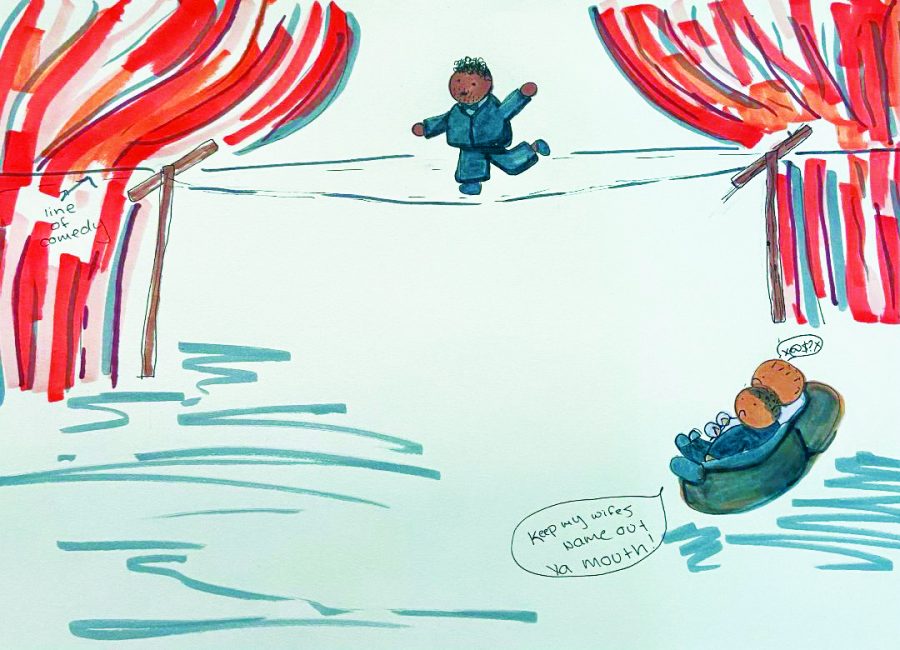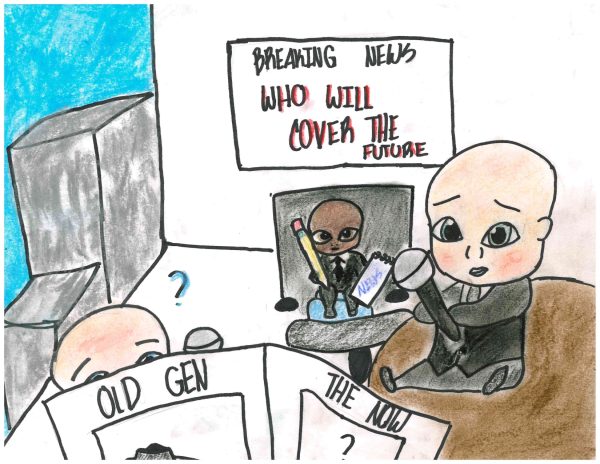In comedy, how far is too far? Pro: Sorry people, learn to laugh a little
With a society more conscious of offensive content in the media, it has become harder for comedians to make humor without risking “cancellation.” The public should recognize the value that darker humor can have; exploring difficult topics in a digestible way.
Comedy is tricky.
It takes confidence to put yourself out there and try to make people laugh, especially strangers.
Throughout history, comedians have made continual attempts to stretch comedy into more taboo, which is perfectly fine.
In recent weeks, discussions have arisen about just how far one can take comedy before it becomes socially unacceptable, especially following this year’s Academy Awards ceremony.
On the off chance that you aren’t aware, comedian Chris Rock compared actress Jada Pinkett to “G.I. Jane” due to her bald-headedness, and Pinkett’s husband, Will Smith, awarded Rock with a hard slap in the face.
While some agreed that this act of sudden violence over a joke, that was arguably in bad taste, wasn’t warranted given the circumstances, others believe that Smith’s actions were warranted.
Others fall in the middle, believing both parties hold a level of responsibility.
While I do believe that there are limits to jokes, I think it is perfectly fine for jokes to discuss topics that offend people.
Our society has grown to be opposed to feeling uncomfortable, especially in reference to one’s identity, and identity is everything.
Identity isn’t just your race, gender, religion or sexuality, it’s your job, health, size, income, politics, language and just about anything else.
This has made it so that cracking jokes about almost anything unrelated to one’s own identity, can easily be viewed as an attack on the identity of another if one isn’t very careful.
Due to this, being a comedian has become a near impossible task, but it shouldn’t have to be.
It’s important for society to recognize that it is okay to not think something is funny
It’s also okay to view something as offensive, but that thing still should maintain its right to exist just as you have the right to fire back.
You don’t have the right to smack someone in the face.
Comedy is more than just a tool for laughter.
It’s a tool for social commentary and even personal healing.
Sometimes exploring the absurdity of a difficult topic or situation can help us digest it.
By sharing laughter, we can bring light to dark situations and make them easier to relate to from an outsider perspective, that’s the value that comedy about insecurity, addiction, poverty, abuse or other hardship people can have.
Personally, the line is drawn once a joke aims to poke fun at a victim of a situation directly, especially if that victim is not in a position to defend themselves, such as one towards children, the mentally disabled or a victim of bullying.
It is normal to make jokes towards friends about things because typically they maintain the power to joke back.
Unfortunately, the Oscar incident may have spurred a trend of attacking comedians for jokes they dislike.
Five weeks following the incident at the Oscar awards, comedian Dave Chappelle, infamous for making controversial jokes about the LGBT community in particular, was tackled on stage at an event in Hollywood.
Comedy is subjective and it is okay to not find a joke funny and some jokes are probably kept to oneself.
However, there is still value in how comedians explore uncomfortable topics, breaking the tension on things that many of us think but never say.







